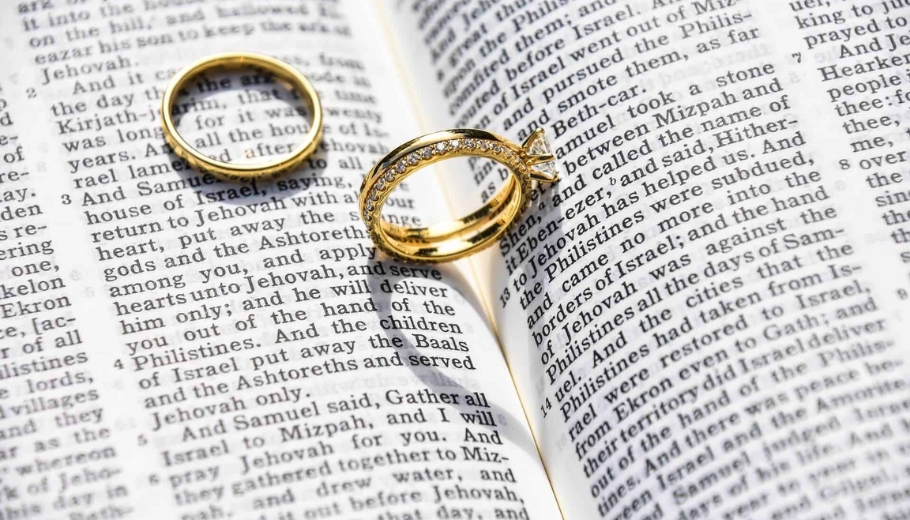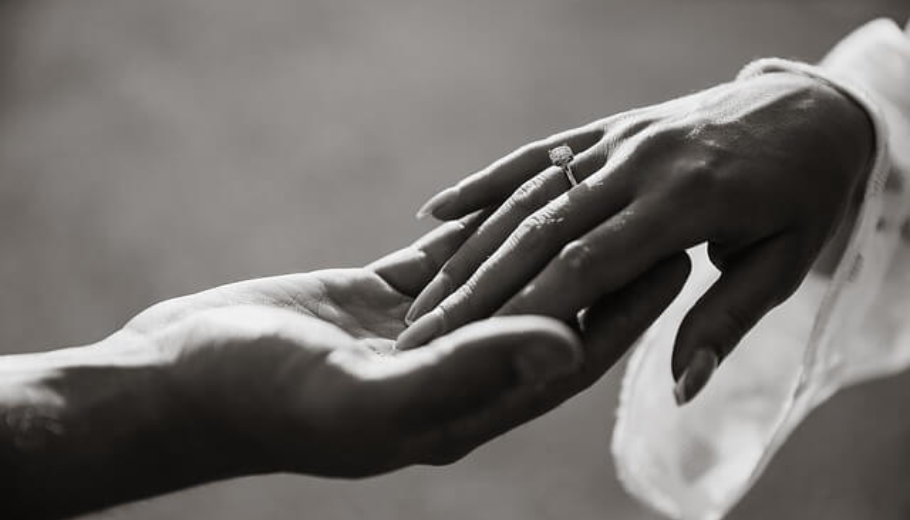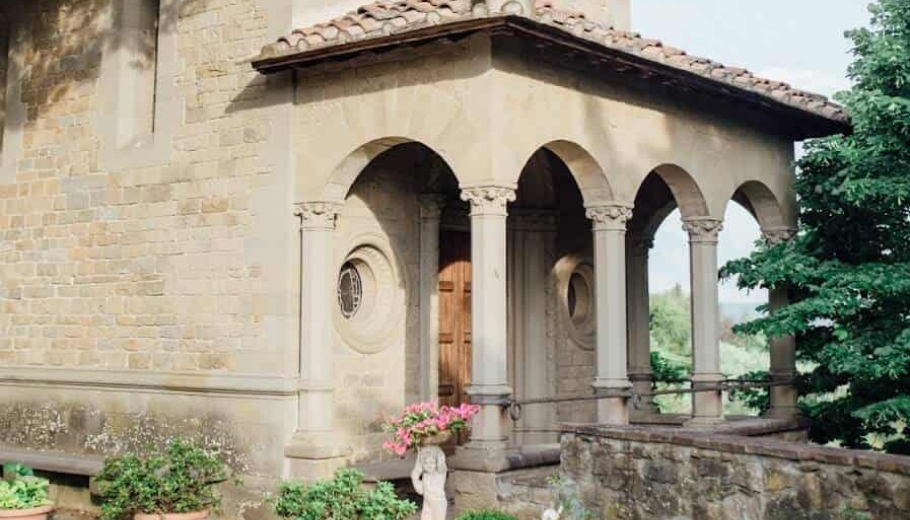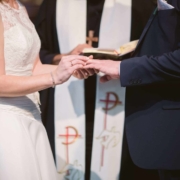What is Pre-Cana Rite in Catholic Church?
The diversity of sacred customs across nations and religions is one of the most attractive features of wedding rituals. For Catholics, marriage is considered a religious sacrament, and it often involves specific, time-honoured traditions.
Couples may be asked to submit particular paperwork, participate in more church events, and go through an intensive marriage preparation procedure (also known as Pre-Cana) with a priest before being allowed for a Catholic wedding.
While modern weddings are taking on new characteristics due to couples wanting to create unique experiences, having a Catholic wedding means you’ll be sticking to some age-old traditions.
There are many things to learn about honouring the Catholic marriage requirements, but today we’re going to focus on what is Pre-Cana and why it’s necessary.
What Is Pre-Cana rite?
Pre-Cana is a marriage preparation course, workshop, or consultation for couples planning to marry in a Catholic Church.
The name comes from John 2:1–12, when Jesus performed the miracle of changing water into wine at a wedding feast at Cana, Galilee.
All couples who wish to receive the Sacrament of Marriage in the Catholic Church must undergo Catholic marriage preparation.
Pre-Cana approaches can differ amongst Catholic dioceses and parishes. But generally speaking, a priest or deacon usually leads six-month sessions with the couple and the help of a married Catholic couple.
These discussions will be crucial for you as a couple in your forthcoming marriage, ensuring that you are both in agreement — or at the very least understanding — about each other’s beliefs and values.
Topics that you can expect to learn about include “family of origin” (your existing family roles, expectations, and traditions derived from your own upbringing), financial considerations, career goals and practical issues, communication skills, intimacy and sexuality, conflict resolution, Natural Family Planning (NFP), and the theology and spirituality of marriage.
Your Catholic marriage preparation or Pre-Cana is typically done in person. Although parishes and dioceses deal with dwindling finances, geographically expanding communities, and deployed military couples, online programs have arisen as a viable alternative to gathered celebrations.

What Happens During Pre-Cana?
Depending on your dioceses, you may have to attend sessions for six months where you’ll be given opportunities to learn about marriage and to discuss many topics that can be considered challenging to address.
Another option that many Catholic Churches allow is a weekend retreat. In this retreat, you would spend an entire weekend with other couples preparing for the sacrament of marriage.
The Catholic marriage requirements of Pre-Cana is a program that you experience in one of the following formats.
First, check with your local Catholic church to see their requirements and offerings.
- A series of weekly sessions with a sponsor or mentor married couple (typically held at their home),
- A weekend retreat with other newlywed couples.
- A web-based Catholic marriage preparation course.
- A series of meetings with your deacon or priest.
Pre-Cana refers to all of the organized and systematic events that assist you and your fiancé(e) prepare for marriage. The church provides them as a tool to assist you and your fiancé(e) in better preparing for marriage.

Is Pre-Cana Mandatory?
Yes! Catholic Marriage Requirements dictate that the Pre-Cana is required for you to get married in a Catholic Church. And honestly, while it may sound like a headache or an invasion into your life, most couples find that they learn a lot.
It can be hard to talk about complex topics when you’re in love. And, of course, many things can occur during a marriage that you may never even anticipate.
So, when you participate in this Catholic marriage preparation, you’ll be challenged to open your hearts and dialogue about some pretty in-depth things.
Part of the Pre-Cana many times includes you partnering up with a married couple, kind of as mentors. Their experience will help you talk through challenging situations so that you both can understand the other’s beliefs and perspectives – or basically, how you would handle things.
A topic that might not have arisen in your relationship is “What if one of your jobs forced you to move? That’s probably not a topic you’ve talked about. Because for most people, it doesn’t happen. What if it happened, and one of you said, “I’m not going.” It’s important to know where you stand before marriage.
What if one of you got seriously injured or paralyzed? Do you know if your significant other would stand by you through it and take care of you?
Of course, we all like to think that married life will be a breeze and that challenging situations won’t happen. But, unfortunately, that is not reality.
It is so important, especially in today’s modern times, that you both understand how the other would react and if the marriage could survive, especially in today’s modern times. The Pre-Cana or Catholic marriage preparation will help you talk about these things to go into the marriage ready to tackle anything.
Why Pre Cana Rite is so Important?
Marriage preparation entails more than just knowing about the sacrament’s religious, spiritual, and theological dimensions (even though these are essential elements present in every marriage preparation course).
Practical parts of marriage preparation include things that will assist the couple in the “day-to-day aspects” of building a new family.
For example, family of origin, finances, conflict resolution, intimacy and sexuality, and various other topics are crucial to discuss before and during marriage to help the couple deal with significant concerns that we frequently neglect to discuss.
Of course, knowing the religious, spiritual, or theological aspects of the sacrament of marriage is an integral part of marital preparation. The course also contains practical discussions to assist you with starting a new family’s “day-to-day issues.”
Family customs, money, dispute resolution, intimacy and sexuality, and various other topics to discuss will help you prepare for critical concerns that we sometimes overlook before and during the marriage.

How Much Does Pre-Cana Cost?
Your Catholic marriage preparation course is not free. There is a fairly hefty fee for attending the weekend retreat — somewhere around $350 per couple, and the price can go up each year.
The six Pre-Cana sessions also cost money, but they are not quite as costly as the weekend. But, it’s always best to check with your local church as different demographic areas may be more (or less) expensive.
Does Pre-Cana Expire?
That’s a great question! If you have completed your Pre-Cana, you don’t have to worry about it expiring. Your certificate is valid for eternity. So when you’re ready to tie the knot, your certificate will be valid even if you postpone your wedding for two years.
When Should You Do The Pre-Cana?
Although specifics and criteria vary by parish, and it’s essential to verify where you plan to marry with the parish, the Catholic Church generally advises that you finish your Pre-Cana program six months before your wedding day.

Suggested for you: Best Catholic Italian Destination Wedding
Can You Take The Catholic Marriage Preparation Online?
Yes! Many websites do offer the Pre-Cana courses online. But, it’s best to check with your local diocese to ensure it will be acceptable to them.
What Do You Do After Pre-Cana?
There is an online survey that you must complete. It asks you a series of questions on what you talked about at Pre-Cana, and you can choose to agree, disagree, or remain uncertain. To avoid cheating on each other, you and your fiance must answer individually. The findings are then forwarded to your church. Next, you schedule an appointment with a couple from the church who walks you through the questionnaire before leaving you alone to mull over the responses.
This isn’t meant to imply that you won’t be able to marry. No matter how many of your responses match (or don’t), the church will not intervene. It’s only to show you any potential red flags that you should address. Better to be prepared, right?
You will only be able to see your findings at this time. You will not receive a copy of the test to compare notes later. They aren’t going to be around in the future.
You can’t say anything like, “Remember at Pre-Cana you said…” and then bring the results out to look for proof offlip-flopping. This is just a way for you and your fiance to chat; it’s not anything you’ll be holding over each other’s heads later in life.
Do You Have To Do It Together?
Yes! Both of you must attend at the same time.
Is The Pre-Cana Worth It?
Absolutely! In today’s modern times, everyone is in a rush all the time. And we like to think that we really know someone without even having conversations about tough subjects.
Going into a marriage not knowing how your spouse will react to other successes and obstacles is a recipe for disaster.
We’ve heard stories of one spouse resenting the fact that the other earns more money, one whole-hearted will not move from their current location -ever, one likes to spend, the other is a penny-pincher and even stories of one spouse not wanting kids. Can you imagine?
Not knowing that the person you want to spend the rest of your life with doesn’t want kids, and you can’t wait to have them.
Sadly, this happens pretty often, and why? Because they never talked about it.
While this type of Catholic marriage requirement may seem extreme, we can assure you that there are many, many benefits.
No one likes to think their marriage is destined for divorce, right? No one goes into marriage thinking that.
Understanding who each other really is, what they stand for, how they will react, and the role that each one is comfortable being in are crucial to a successful marriage and lifetime commitment.
Dialogue is essential, and the Pre-Cana teaches you how to do it. Absolutely a must if you want a Catholic wedding.








